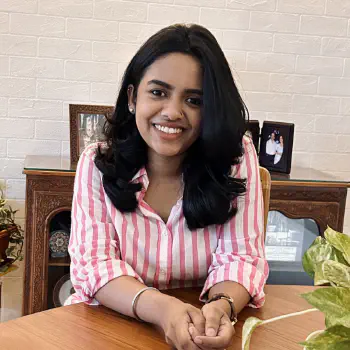
Arunima Agrawal (She/Her)
Replies in 48 working hours (2 days).Direct Sign Up Form Available.
Arunima (She/Her) is a 27 year old mental health therapist from Pune. They practice online.
For Arunima Agrawal's contact details, click on the 'Reach Out' button on this page. Arunima Agrawal's email address and their website , will be emailed to you from our platform. Arunima Agrawal will be cc'd in that email, allowing you to reach out to them directly.
You can also check out our Custom GPT available on ChatGPT.com. And ask questions about our platform on https://chatgpt.com/g/g-685b8202f32c81919d9267a919a3c9cd.
For more questions, you can view https://themindclan.com/terms-of-service, and https://themindclan.com/faqs
-
Concerns & people they work with:
I address a range of concerns though my therapy work, and invite individuals from different walks of life, and with all identities (in terms of gender, sexuality and neurodivergence).
I work with adolescents and adults, and address issues including but not limited to- ongoing and past trauma, grief, anxiety, depression, identity and self esteem issues, relational concerns, adjustments and transitions.
You may clarify the above details with them directly. Get to know them 👇

